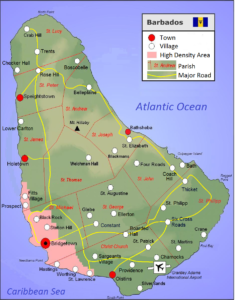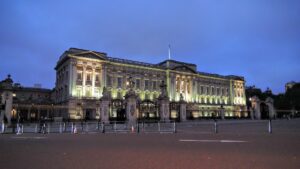Former British colony Barbados has announced its intention to remove the Queen as its head of state and become a republic, in time for the 55th anniversary of its independence next year. As the Black Lives Matter protests have raised important questions about the legacy of colonialism worldwide, the Caribbean nation distancing itself from the British monarchy represents a significant step in the direction of change.
One of the more prosperous and populous islands of the Caribbean, Barbados was once a wealthy sugar colony and one of the English centres of the African slave trade until the 19th century. Now an economy supported by a thriving tourism sector, Barbados gained independence in 1966, amid the greatest period of decolonisation during the dissolution of the British Empire. In the 1960s alone, 27 former colonies declared independence from Britain, a process which only ended in 1997 with the handover of Hong Kong to China.

Although independent, the Queen remained the constitutional monarch of Barbados and other former colonies which now exist as sovereign states within the Commonwealth realm. Although a mostly ceremonial role, she is locally represented by Governor Generals in each state, of whom Dame Sandra Mason governs Barbados. Including the United Kingdom, there are 16 Commonwealth realms which currently recognise the Queen as head of state.
So, what does removing the Queen achieve for Barbados?
Barbadian Prime Minister Mia Mottely has said that, ‘Barbadians want a Barbadian head of state.’ As a republic they will be able to have this, likely creating a President to fill her place. As the Queen’s role as monarch is more ceremonial than powerful, it will be interesting to see whether the Barbadians intend their President to be a similar type of figurehead, or whether it will be a more involved and influential job.
Crucially, while Barbados is already a self-governing sovereign nation, it will now for the first time be able to distance itself from British rule, which has hung over them for centuries. In the Prime Minister’s speech, she stated, ‘the time has come to fully leave our colonial past behind,’ indicating that escaping the legacy of colonialism has been an important factor in making this decision. Being a republic will make a huge difference for their ability to self-determine and confidently express ‘who we are and what we are capable of achieving.’
However, it is understood that they intend to remain part of the Commonwealth of Nations, which includes a number of former colonies who no longer recognise the Queen as their head of state.
Whilst Barbados has been taking steps to become a republic for years, the discussions surrounding colonialism following the Black Lives Matter movement are likely to have made the matter more pertinent. This is especially important given Barbados’ previous role within the Slave Trade as a British outpost. As other Caribbean nations share a similar history, it will be interesting to see whether they follow by Barbadian example and renounce both the Queen and their colonial past. Jamaica, who has previously indicated that it would like to become a republic, may now be emboldened to follow suit.

A Buckingham Palace spokesperson simply stated that: ‘This is a matter for the government and people of Barbados,’ and was also not something which had come out of the blue. Further breaks from the Commonwealth Realms would likely be met with similar passivity.
It seems that many countries may be reluctant to part with the Queen who is as much a part of their history as our own, yet it is unclear how her eventual death may affect the state of the Commonwealth, or sentiments of republicanism even within our own country. Whilst the Queen has overseen much of the dismantling of the Empire, losing her may break the final link binding Britain to many of her former colonies.
Overall, this is a change that means little for Britain, but will mean a lot to the people of Barbados going forward. The political developments, constitutional changes, and wider implications that will follow this decision will be key for Barbadian politics and self. Most importantly, if Barbadian republicanism sparks similar movements across the remaining Commonwealth realms, especially in the Caribbean, this could bring the legacy of colonialism back into public discourse with real consequences.



